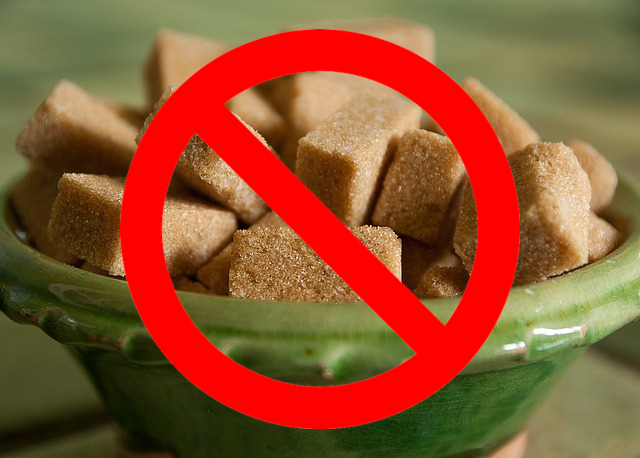Is coffee healthy for me? Coffee can be healthy if it is consumed in moderation. There is nothing like waking up to the aroma of a freshly brewed cup of coffee. However, if consumed in excess, coffee may have negative effects on the body and health. So, what is a right balance for coffee to be healthy? Read on to find out.
This post contains references to products. We may receive compensation when you click on links to those products, at NO charge to you. Please visit this page for our Affiliate Policy.
In addition to its fantastic aroma and heavenly flavor, coffee comes with some possible health benefits. In fact, research shows that coffee can be quite healthy for many of us in many different ways. Among the important discoveries is that drinking coffee can help us live longer.
So why do we still meet people who are afraid of drinking coffee and prefer tea, instead? Well, too much of a good thing is always harmful. Also, it turns out that coffee might not be good for everyone.
Benefits and potential impact of coffee consumption
Why coffee can be healthy for you? 🏆
Coffee can be very healthy if consumed in moderation. Coffee can reduce the risk of many diseases, slow down the aging. Further, drinking coffee is associated with a 64% lower risk of early death. Those are just some of the most important health benefits of coffee. There’s more.
→ #1. Reduces the risks of many diseases and slows down the aging
Coffee reduces the risk of many diseases, including type 2 diabetes, dementia, Parkinson’s disease, and some cancers such as colorectal cancer. That is because coffee contains a lot of antioxidants, compounds that have been shown to aid in slowing down the deterioration of body cells.
→ #2. Associated with 64% lower risk of early death
A study of the European Society of Cardiology showed that drinking coffee may prolong life. This conclusion was reached following the observation that out of the 20,000 people who had been involved in the study over the span of 10 years, those who drank at least 4 cups of coffee per day, had a 64% lower risk of early death.
→ #3. Correlated with the decreased risk of depression
Coffee is also known to improve cognitive functions and decrease the risk of depression. Harvard School of Public Health found that among 50,739 women participating in a study, depression risk decreased with increasing caffeinated coffee consumption. Further follow-up studies are underway.
→ #4. Increase stamina and improve performance ☕
Coffee contains caffeine, which is actually a main ingredient in many sports beverages and energy drinks. Drinking coffee before a workout can increase your stamina and improve your performance. Caffeine is also used as a main ingredient in many fat-burning supplements for the reason that it can boost the metabolic rate by 3-11%.
→ #5. Contains essential nutrients
A not very well known fact about coffee is that it contains essential nutrients, including the following:
- riboflavin (vitamin B2),
- pantothenic acid (vitamin B5),
- manganese,
- potassium,
- magnesium, and
- niacin (vitamin B3).
One of the reasons I like coffee is that it makes me more alert. But, I also have a fairly low blood pressure. I tend to feel tired, lethargic and dizzy. Since drinking coffee has the power to raise blood pressure levels thanks to caffeine, coffee is recommended for people like me.
Is coffee good for your liver?
Dr. Veronica Wendy Setiawan found in her study that coffee had certain components that could impact our health in a positive way. These components help improve liver function, reduce inflammation and improve insulin sensitivity.
The study shows that coffee can be good for liver and its functions. It appears that coffee contains an ingredient, which is not yet discovered, that helps decrease the likelihood of cirrhosis, especially alcoholic cirrhosis.
Who should NOT drink coffee?
Consuming too much coffee, though, comes with its downs. Coffee consumption has been linked to an increase in blood pressure, and a rise in the body’s low density lipoprotein (LDL) cholesterol level. Also, drinking coffee in excess can lead to anxiety, panic attacks, insomnia, and caffeine dependence.
There are groups of people who should drink coffee in moderation.
→ #1. Expecting mothers
Expecting mothers are at a much higher risk of experiencing negative effects of coffee consumption. Studies showed that consuming more than 200 mg of caffeine per day increases the risk of miscarriage and preterm birth.
More conclusive research is needed to show whether caffeine consumption has a negative effect on fetal growth, but there are already some reasons for concern regarding that, as some studies already implied.
→ #2. People who metabolize caffeine very slowly
Individuals who metabolize caffeine slowly are also at a higher risk of negative effects of coffee consumption. These people are much more likely to suffer from heart-related diseases, if more than two cups are consumed each day.
→ #3. People with hypertension or atrial fibrillation
American Heart Association advises all individuals who suffer from hypertension or atrial fibrillation (irregular heartbeat) to limit their daily coffee intake to one or two cups of coffee per day.
→ #4. Unhealthy lifestyle choices
Finally, it seems that coffee may not always be the main cause of health problems. It is lifestyle choices people make that account for health-related problems. Dr. Donald Hensrud M.D. pointed out a strong correlation between people who choose inactive and unhealthy lifestyles and drinking a lot of coffee.
How to drink coffee in a healthy and balanced way?
Bringing a few changes to the way we drink coffee can actually make it a bit healthier and safer.
Here are some quick recommendations, but you’re welcome to explore more below.
Limit these
Try these
Healthy coffee beans?
Although many consumers have heard only about Arabica coffee, there are over 100 types of coffee out there.
Arabica coffee beans are the most popular, with a market share of around 70%. Arabica beans are used in popular coffee brands such as
The second most popular coffee beans are the Robusta beans:
Last, but not least, there’s Liberica (Ador’s Coffee) and Excelsa.
The Robusta, Liberica and Excelsa are very strong. These coffee beans have around twice as much caffeine as Arabica beans.
Therefore, we suggest that Arabica coffee beans might be better if the goal is to avoid too much caffeine. This should be easy as most coffee brands on the market contain either 100% Arabica coffee or a blend that contains Arabica coffee, anyway.
What is the best time to drink coffee?
Drinking coffee at certain times can actually increase the benefits of coffee. In a recent article, we have shown that drinking coffee early in the morning is not the best practice.
Though 65% of Americans drink coffee in the morning, it is more beneficial have our caffeine boost mid-morning or in the early afternoon. Also, you should avoid drinking coffee too late in the evening, as the effects of caffeine last for up to 6 hours after its consumption.

How often is it safe to drink coffee?
In spite of its health benefits, coffee can turn against you if you drink too much of it. High consumption of coffee has been linked to such health issues like heart problems, anxiety, digestive issues, muscle breakdown and fatigue.
What are healthy add-ons for coffee?
Not everyone likes their coffee strong. Some people like to take their coffee with sugar, milk, creamer, syrup, chocolate sauce, and so on.
However, we might forget that all these added ingredients also add to the caloric intake. For instance, adding cream to a cup of coffee adds around 50 calories to your drink, not to say that it also adds an unnecessary amount of saturated fat.
Adding these ingredients once in a while is not a problem. However, they do add up over time, if consumed daily.

What are some healthy coffee brewing methods?
There are many ways that you can brew your coffee, but it seems that some of these might come with unwanted effects. Basically, some methods, like drip coffee machines, use filters that allow the coffee to pass through, retaining particles that can become harmful. Other brewing methods, like the French press, don’t do that. The components we need to fear here are called diterpenes (cafestol and kahweol) and have been shown to have a negative impact on our health. Drinking five to eight cups of unfiltered coffee per day can raise your LDL cholesterol levels.
What are some safe coffee bean types?
According to NCA, coffee roasts fall into one of four main categories:
- light (Cafe Don Pablo Subtle Earth Organic Gourmet Coffee),
- medium (Illy Coffee Iperespresso),
- medium-dark, and
- dark (Koffee Kult Dark Roast Coffee Beans).
The darker the roast, the less caffeine your coffee will contain and the less mass the coffee grounds will have too. Also, as research has shown, lighter roasts contain more anti-oxidants, which makes them better for your health.
Is there a healthy coffee grind size?
To brew coffee, coffee beans have to be ground (preferably freshly). There are three main grind sizes that baristas talk about: large, medium and fine.
Each brewing method gives the best result when paired with an appropriate grind size. The right grind size ensures that extraction is performed properly. Thus, a cup of will fill with coffee that’s not just delicious but rich in health benefiting components.
While buying ready grounds is possible, many people prefer to grind their coffee beans themselves, at home. Among the best ground coffee on the market, you’ll find: Death Wish Ground Coffee, Lavazza Crema e Gusto, and Koffee Kult Medium.
What do you think? Is coffee healthy?
So here you have it. Go head and enjoy your coffee in peace, but always keep in mind that coffee has the potential of transforming from your best friend into your worst enemy. Fortunately, you have the power to control that relationship. Coffee can be very healthy for you and I, but it can also be very harmful if consumed improperly.
If you have a question, please feel free to contact us at Twitter, Facebook or via our contact form.
How many cups of coffee do you drink? Do you believe in results of studies that were performed on coffee?
Let us know in the comments!




Leave A Comment